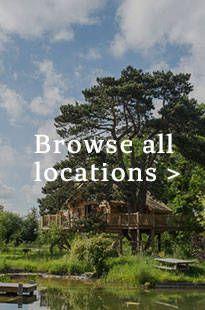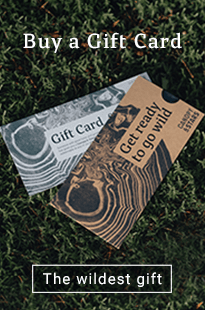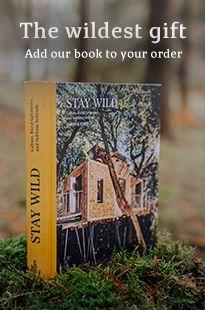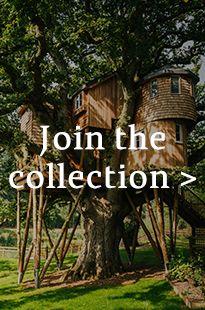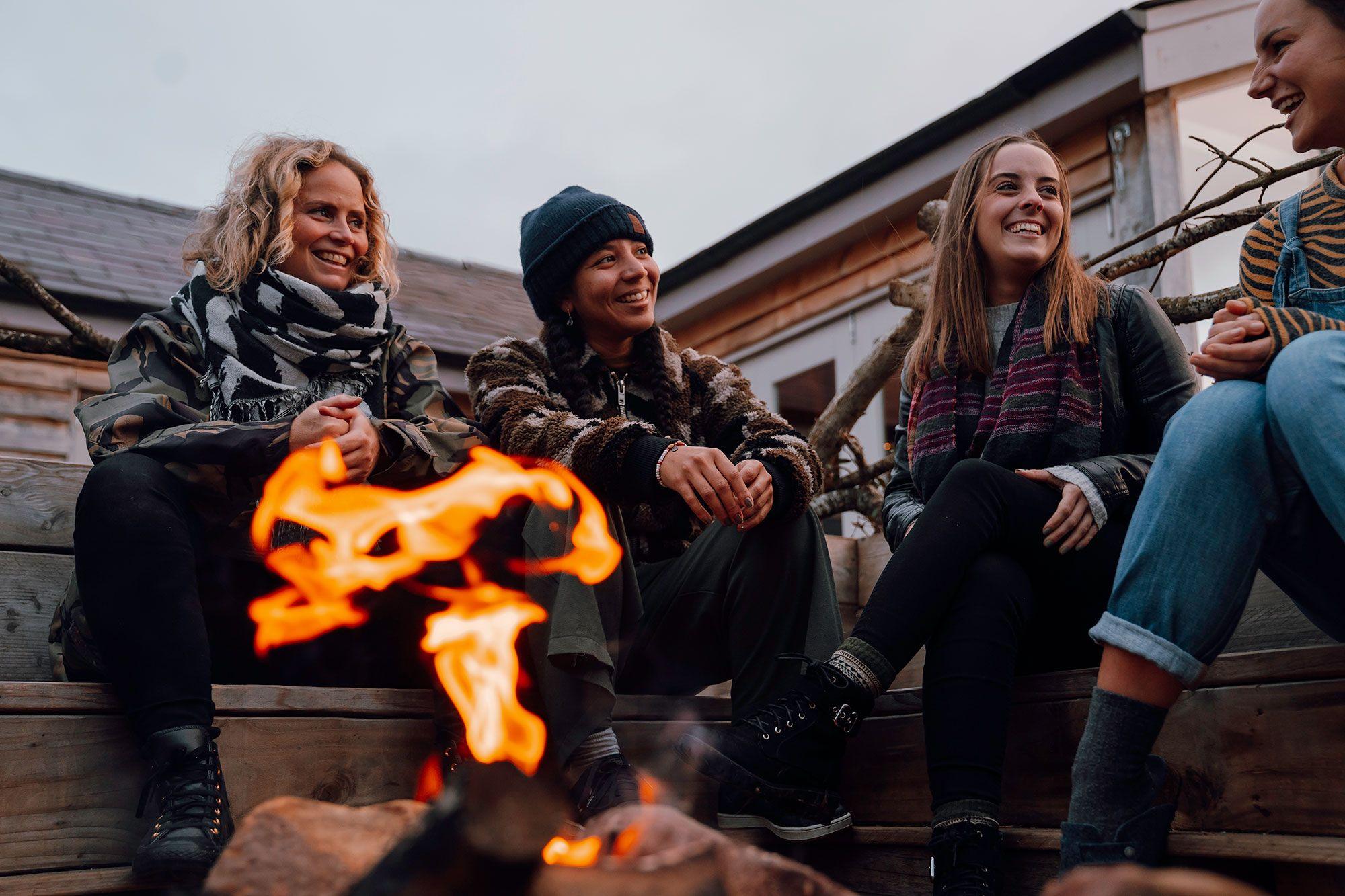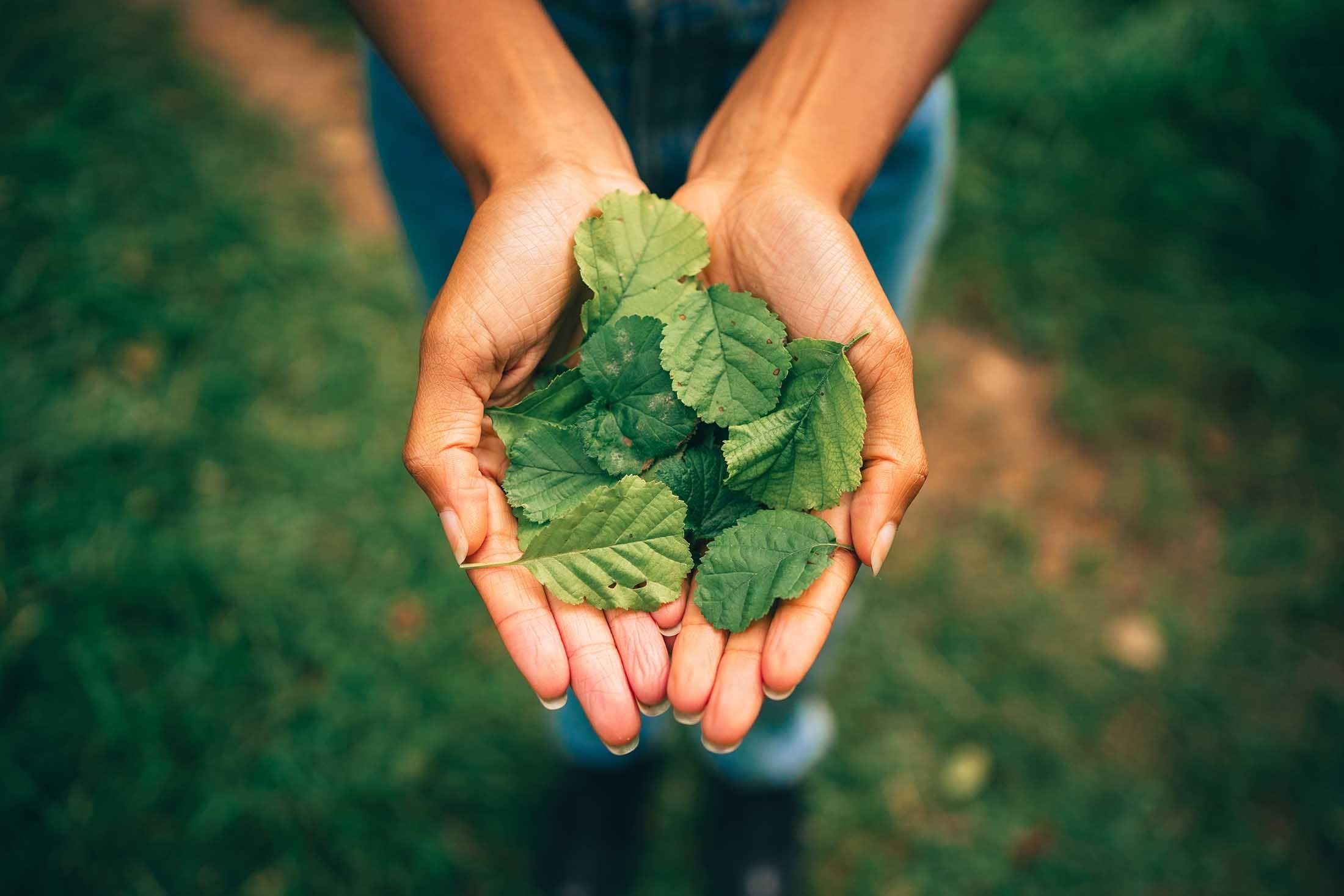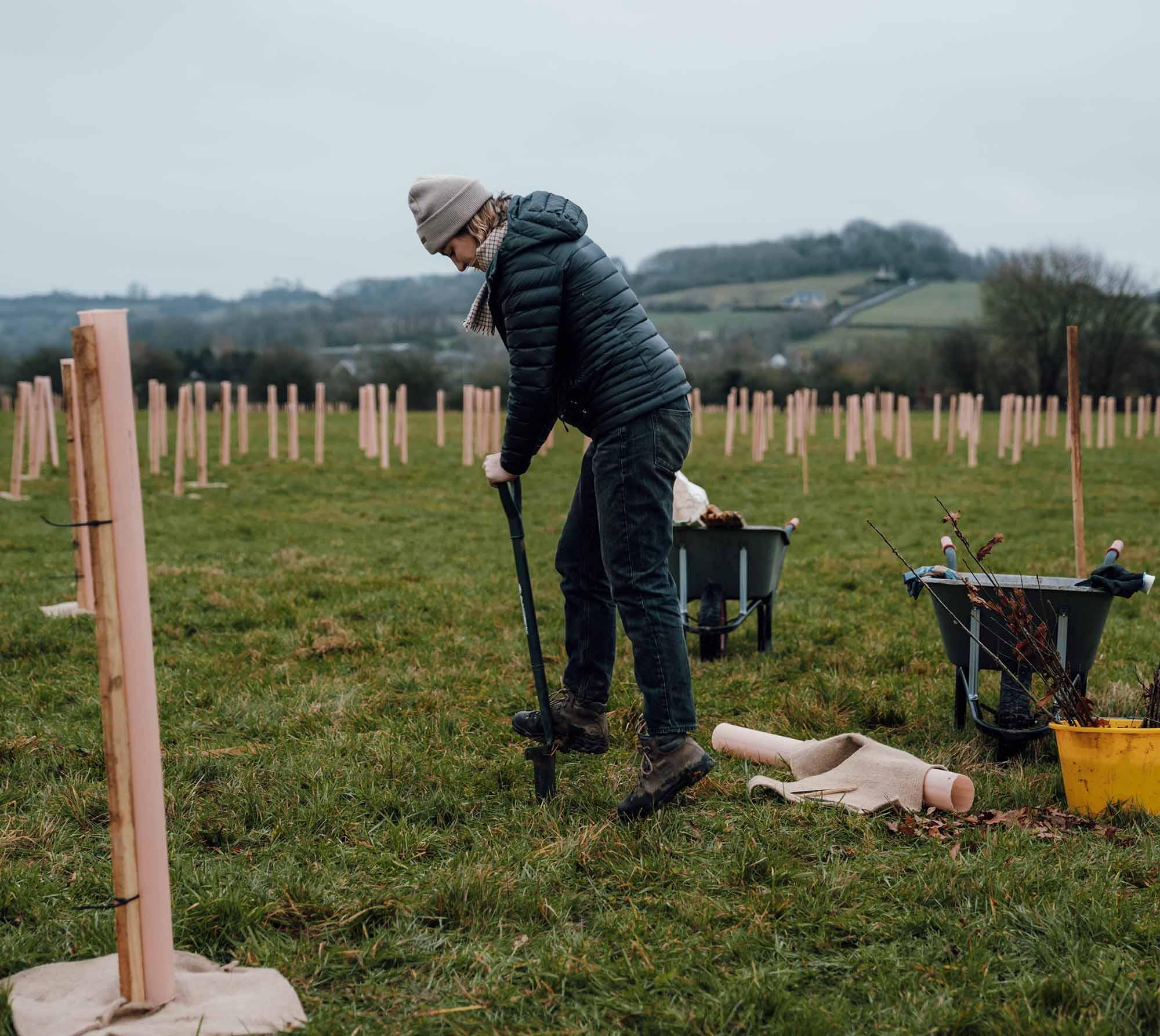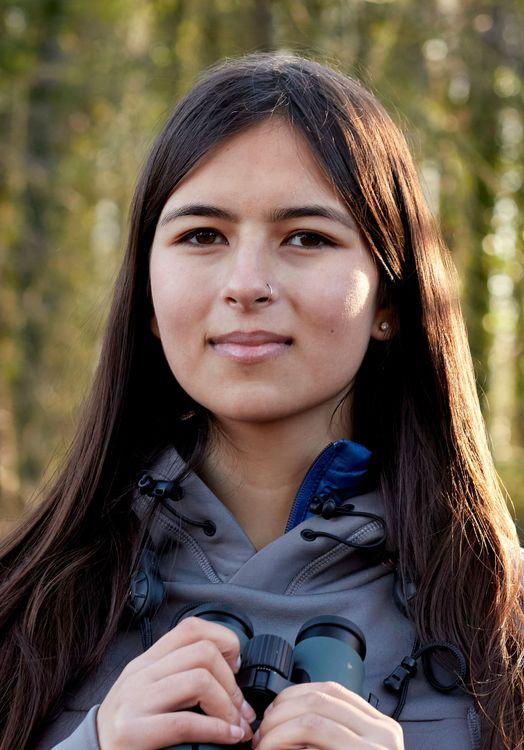
A Life More Wild - Episode 1
Mya-Rose Craig & The Keep
A nature walk with Mya-Rose Craig
Mya-Rose Craig is a British-Bangladeshi environmentalist, activist, equality campaigner, filmmaker. And she loves birdwatching so much that she's better known as Birdgirl. She's been an ambassador for Survival International and Bristol's campaign to be European Green Capital, she's founded the charity Black2nature, is a Charter Champion for The Charter for Woods, Trees and People and is the youngest person to have seen over half the world's birds. We went for a walk near her home just south of Bristol to talk equality, nicknames and ravens.
Where are you taking us today?
I wanted to take you guys on one of the very regular walks I've been doing during lockdown to see some of my favourite birds. During lockdown I've been watching a pair of ravens that are breeding in an old abandoned quarry. Me and my dad were very excited when we realised that there were ravens nesting nearby. You just don't really get ravens nesting that close to people's houses normally. They prefer cliffsides and things like that. I haven't been up for a few weeks though, so I have no idea if the chicks are going to still be there or if they'll have fledged already. But yeah, we're gonna go check it out today and see what's there.
What draws you to the quarry?
Over the last 50 years or so, nature has just totally reclaimed the quarry and is turning it from a massive sort of scar in the ground to an amazing habitat for the birds and the animals that live here. And it's not just the Ravens, you've got loads of other great stuff. I found a beautiful flower in the bog at the back of one of the quarries once and I didn't really know what it was but I post a picture and someone said it's a really rare orchid. And of course, you've got loads and loads of birds.
Have you been spending a lot of time here?
It's somewhere where I've spent a lot of time during lockdown, but also where I spent a lot of time birding when I was a kid, because my whole family are birdwatchers, my parents and my older sister. They've been taking me out since I was a baby and it's always been a really big part of my life because of that. I've always, always loved birds and I love these woods. We used to see a lot of goldcrests here and they used to fly around a lot in these very cool trees that we've got around them. And that was always, always a very special treat, because I love goldcrests, they're really beautiful.
But you haven't always felt so welcome in nature...
I've always really loved going out into nature, but by the time I was 11 or 12, I was becoming really aware that I just never saw anyone who wasn't white out in the countryside. That was my first observation on a really low level, that there was some sort of issue going on in terms of people accessing and engaging with nature. Then, totally unrelated, I decided to run a summer camp for kids. It was just so I could hang out with other kids who were interested in nature for a weekend. And it was super fun and loads of people were really interested, but everyone who signed up was a white middle class teenage boy. And I guess that felt much more personal and much more real in terms of the issue. Because it was something that I was organising and something that I was sorting out.
So you did something about it?
I ran another camp and I went out of my way to go and get some lads from inner city Bristol and bring them out on it. The camp went really well, these kids had a really good time and they all engaged with nature in some shape or form. And a lot of finding these people totally came down to just community contacts and knowing like trusted figures within these communities. And I think that that's the missing link that a lot of events that have historically tried to work with kids in these communities just haven't managed to have or haven't managed to find.
And then you did even more...
Yeah, I wrote to lots of big UK nature organisations to ask what they were doing to try and solve this issue. And they weren't really doing anything. Because I think at the time, there was a real sense of entitlement in terms of saying, "there's no segregation, we're not stopping people from coming. So it's not really our business if people aren't coming." Which obviously, is not quite how things like this work. But I ended up running a conference that next year called Race Equality In Nature that was all about trying to figure out what these issues were and how to solve them. It was a really important conference, because no one had ever just asked people from those communities what they felt the issues were and they knew. They knew straight away what was going on.
And what were some of the issues that came up?
We're talking about some low level things that could be really easy to fix, like the fact that a lot of people just don't have the right clothes, the right footwear for going outside and into nature in the first place. Or the fact that in some cultures there's a very real fear of dogs. People don't want to go into spaces where they're worried there might be dogs running around, especially if they have young children, because there's just a completely different attitude to dogs in those cultures. But there are also some really difficult issues to overcome, like how there was just a real feeling of the countryside being white and elitist and unwelcoming. And they didn't want to go there because they felt that they wouldn't be welcome. But I think there's the potential for some really positive change going forward after Black Lives Matter and a lot of people have been venturing out into the countryside for the first time during lockdown. There's also been a lot of really honest conversations about race and race and equality and how to fix those issues. But I guess we'll just have to wait and see.
So, we've arrived at the quarry, what are you looking for?
I want to see if the chicks are still in or if they've fledged. And I genuinely don't know what the answer is going to be. This quarry is a massive sort of U shape and it gets very tall at the back, much taller than it looks from the ground. The nest is right at the top, just where those jackdaws are flying around. The jackdaws make me think the chicks have fledged and left, because these ravens have been very territorial and the jackdaws wouldn't be so close to the nest if the chicks were still vulnerable. Ravens are quite savage, really. They've got a very big bill and they use it.
They're also very territorial in terms of their young. So they'll care for them, they'll feed them and then they'll kick them out of their territory. So it's time for those ravens to go and find somewhere else to live. They might be long gone from the local area by now. I don't know, I might never see these chicks again.
Last question, where did the nickname come from?
I actually gave myself that name, which is a bit embarrassing, when I was 11, no younger than that, actually when I was about eight. I needed an email address to start talking to people like the National Trust and I went for Birdgirl, just cos it sounds like a superhero. I liked birds. I thought it was pretty cool at the time. And then I decided to call my blog, the same thing. And it's sort of stuck.
Reintroducing beavers to the British countryside with Lizzie from The Keep
Lizzie and her partner Merlin run The Keep at Cabilla, in Cornwall. They reintroduced beavers to the river Warleggan as part of an ambitious project to transform and preserve their land. We caught up with Lizzie (and one of her chickens) to see how it was all coming along, talk about what's next and find out if she ever gets a moment to relax.
So whereabouts are you exactly?
Cabilla is an upland hill farm right in the middle of Cornwall. It was my husband's father's farm and it's incredible, really like no other place on earth I've ever seen. there's nothing symmetrical or uniform about where we live. There's ancient oak woodland, which is over 1000 years old and full of amazing, gnarled, beautiful oak trees, we have the beautiful river and there's tonnes of bathing pools and wild swimming spots to paddle in which we love doing in the summer. And then we also have wildflower Meadows full of butterflies and bees. And then the rest of the farm that we're kind of slowly sort of bringing back to life.
It sounds idyllic...
It's just a beautiful, happy place. And you can hear the birds all the time. The birdsong is so loud and we always laugh because we have an alarm clock, one of those ones that wakes you up with the sunshine and nature sounds. And quite often we're waking up with the natural birdsong before the alarm even goes off. So, you know, it's like 5am, and we've got all of these birds nesting outside our windows and singing.
How long have you been working on it?
We've been coming down to and fro for the best part of a decade, splitting life between London and here and kind of always coming here and finding such release. I think we'd sometimes physically change, you know, we've got off the train and you'd be so tightly coiled springs in London, and then you'd get off the train.
Is that a chicken?
Yeah, hang on one sec. Sorry. They think they own the place and if you leave the door open they like to come in and see what you're up to. She's gone now.
So how do you go from, "what a lovely bit of land", to "let's reintroduce beavers"?
For the longest time we've been dreaming of how we could do something with the farm is truly good. Something that's good for the environment and that's good for the people that come to stay here. And for the community as well. And beavers are the most amazing creatures. They're what's called ecosystem engineers. By introducing them to an ecosystem, they essentially make everything better and more diverse. And by the way, I'm not a scientist, I'm just an enthusiastic amateur. But they do something called "atrophic cascade", which essentially makes the population of flora and fauna around them more brilliant, more vibrant, and more dense, which is incredible.
And is it a simple thing to do? Down to the pet shop and then let them go?
Oh no. It takes a really long time to get permission to do all of these things. So it's been the in the making for about three years. Because you have to get lots of permits, you have to prove that the environment that you're going to be putting them into is appropriate and suitable for them that you know where they're going to down the land can hold that, that you're not going to damage anything else.
Is it working and have they built a dam?
So we had two beavers, Sigourney and Jean Claude. We released them one at a time. Merlin's father had actually just come out of hospital. He'd been in hospital with COVID for about seven weeks, most of that on a ventilator. And we decided we wanted to go for it. We wanted him to be a part of it. And so he actually released Sigourney. She was in the enclosure and cracking on with building her dam. Six months later, we released Jean Claude. And we were really worried because Sigourney had a dam at the top of the enclosure, and Jean Claude had one at the bottom. And we were like, "Oh, god, they're not going to get on." Then just in the past few weeks, we've seen on our trail cams that they're now cohabiting. So we really hope that they're going to be starting a family soon. It's quite exciting.
Are they quite easy to spot when you go down there?
There's always something to see, which is the really exciting part of it. We're very lucky that they've built their dam in a fantastic place. So even if you're just walking past the top of the farm, you can see this incredible dam that is growing every day. And you can see trees that they're working on, or a paw print or, or some shavings and lots of poo everywhere. You see them more at dawn and dus and you hear them a lot, actually. We often just kind of sit there kind of waiting to see something, but you can often hear kind of shuffling about or a tail slapping on the water, that kind of thing.
That's not the end for your work on the land though is it?
We call it the 1000 year project, and we call it that because I don't ever really think you own land properly. We're just kind of guardians of it. So the ancient oak woodland has been left to its own devices for over 1000 years. And there's magic in those woods, and a health and robustness to the soil that it grows in and just to how it operates. We've had scientists come down already and tell us that the soil health of the ancient woodland is so much healthier than the surrounding land. So our goal is really simple. Leave the land in a better state than when we found it. So it really is a project for creating this kind of positive circular economy around the land, that will impact everyone in a better way, and kind of protects it for the future.
We heard a rumour that Lynx are your next idea. Is that true?
We're really open to genuinely doing positive things. You know, lynx are incredible creatures and they haven't really been around for a while. You could say that humans' fault and that we've kind of been responsible for that either by impacting them directly, or impacting the species around them in the food chain. It took us the best part of, you know, three to four years to do beavers and lynx are kind of a whole other ballgame. But for sure, we're interested and excited. And I think that they could have an incredible impact. But we need to kind of, I think we just need to go gently.
So how do guests respond to the place?
I think one of the things about being here is that it makes everything simple. You switch off from everything else that you have going on. That's definitely been the experience that my husband and I have had. I think for the most part it enables people to just be present and be still. And then I think when you're present and you're still you notice things in a different way. An incredible plant or a leaf that you haven't seen before or an incredible beetle that you see on the ground, you know, things that you would normally not notice can bring such joy.
And with guests, pigs, beavers and all the land management, do you ever get a chance to relax?
We're kind of on the go all the time. We operate at 150 miles an hour most of the time, but we're fortunate that we can do that within nature. So we always make sure that we're taking time to just have a coffee and sit in the sunshine. And then maybe at the end of the day, we'll and have some Sundowners, sitting on the top of the Landrover at the top of the farm and we'll watch the sunset and be with our dogs. It's just simple things, you know, working hard balanced with simple pleasures.

